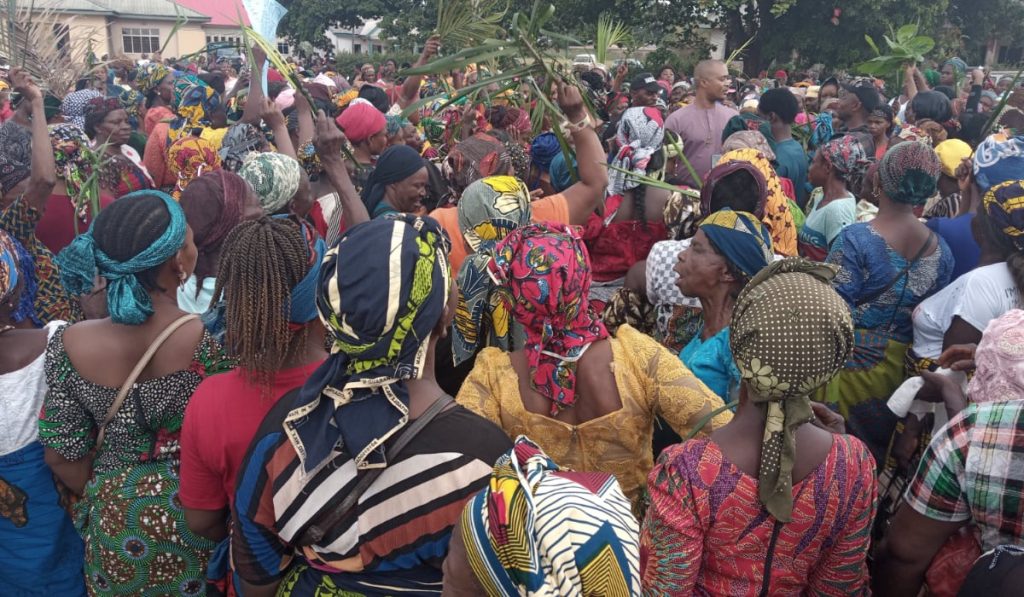The farmers-herders crisis, a persistent and devastating conflict across Nigeria, disproportionately impacts women and girls, exacerbating existing vulnerabilities and creating new challenges. Displacement, a common consequence of the conflict, forces families into Internally Displaced Person (IDP) camps, where women and girls face heightened risks of gender-based violence (GBV) and mental health issues. The precarious environment of these camps, often characterized by inadequate security, limited resources, and the breakdown of social structures, creates a breeding ground for exploitation and abuse. The psychological toll of displacement, coupled with the constant threat of violence, contributes to long-term mental health challenges, including depression, anxiety, and post-traumatic stress disorder (PTSD). Furthermore, the disruption of healthcare access within these camps poses significant threats to maternal and child health, placing an additional burden on women who are often the primary caregivers in these challenging circumstances.
The research presented at the Veritas University roundtable highlighted the multifaceted impact of these conflicts on women, extending beyond physical and psychological harm to encompass social and economic disruption. The Bwari conflict and the Enugu sit-at-home orders, for example, have dramatically altered the lives of women in these regions, disrupting their livelihoods, limiting their access to essential services, and increasing their vulnerability to violence. The intersection of pre-existing gender inequalities with the specific dynamics of these conflicts amplifies the negative consequences for women. Traditional gender roles, often associated with caregiving and domestic responsibilities, place women at the forefront of managing the fallout from conflict, while simultaneously limiting their agency and access to resources.
The research findings underscore the urgent need for comprehensive interventions that address the unique challenges faced by women and girls affected by conflict. This includes prioritizing their safety and security within IDP camps, providing access to mental health services and psychosocial support, and ensuring the availability of essential healthcare, particularly reproductive and maternal health services. Addressing the root causes of these conflicts, including land disputes, resource scarcity, and political instability, is crucial for achieving lasting peace and stability. Furthermore, empowering women economically and socially through targeted programs and initiatives can enhance their resilience and enable them to actively participate in peacebuilding and recovery efforts.
The effects of these conflicts ripple through communities, impacting social cohesion and eroding traditional support systems. Women, often the cornerstone of social networks, bear the brunt of this disruption. The loss of social capital, coupled with the trauma of displacement and violence, further isolates women and limits their ability to cope with adversity. The breakdown of traditional social structures also increases the risk of GBV, as mechanisms for protection and accountability weaken. Rebuilding social cohesion and strengthening community-based support systems is therefore essential for fostering resilience and creating a safe and supportive environment for women and girls.
The research also explored the resilience strategies employed by women in the face of these challenges. Despite the immense difficulties they encounter, women demonstrate remarkable strength and resourcefulness in navigating these crises. Their resilience manifests in various ways, from organizing mutual support networks within IDP camps to engaging in income-generating activities to provide for their families. Recognizing and supporting these resilience strategies is crucial for fostering recovery and empowering women to become agents of change within their communities. Providing access to education, vocational training, and microfinance opportunities can further enhance their ability to rebuild their lives and contribute to long-term peace and development.
Addressing the specific needs and challenges faced by women and girls in conflict zones requires a multi-pronged approach that involves government agencies, civil society organizations, and international partners. This includes strengthening legal frameworks to protect women from violence, providing access to justice and redress mechanisms, and promoting gender-sensitive security sector reform. Furthermore, integrating a gender perspective into all aspects of humanitarian response and development programming is essential for ensuring that women’s voices are heard and their needs are met. By prioritizing the well-being of women and girls, we can contribute to building more just, peaceful, and equitable societies.














